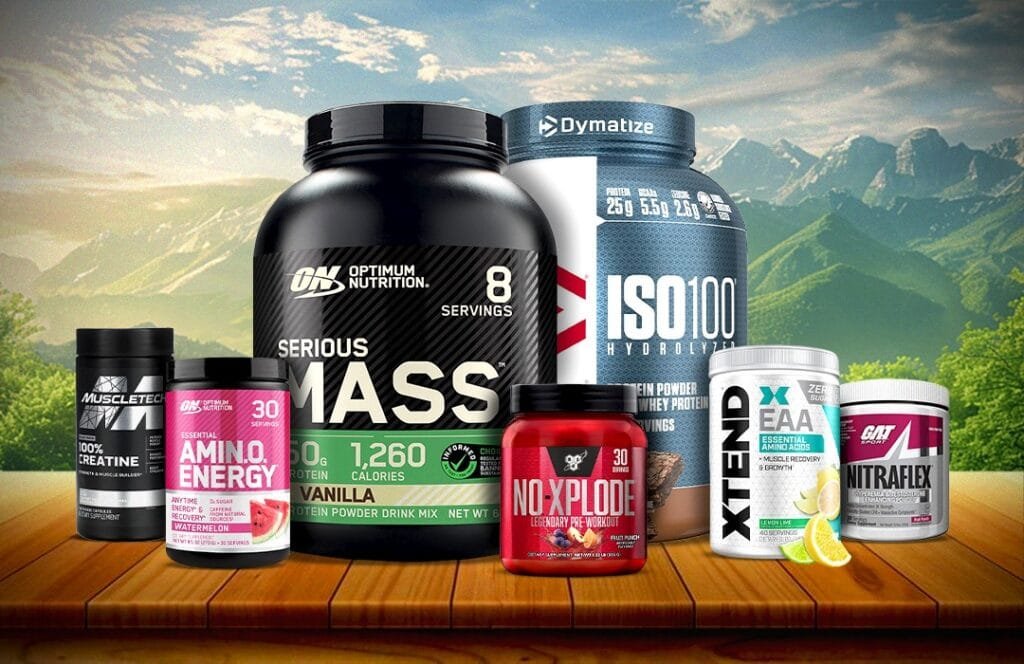
In the world of fitness and physical development, supplements often take center stage, promising faster results, improved performance and faster recovery. However, the inclusive approach can be complex, with many options and conflicting advice. This blog aims to demystify popular supplements like whey protein, creatine, pre-workout, and analyze their benefits and possible side effects to help you make informed decisions.
Understanding Supplements
Supplements are not magic solutions but tools to support a rounded diet and consistent training. Before adding any supplements, it is important to consider your diet, fitness goals and possible health conditions.
1. Whey Protein: The Muscle Builder
What it is: Whey protein is a high-quality, fast-digesting protein derived from milk, rich in essential amino acids, especially leucine, which is essential for muscle protein synthesis.
Benefits:
- It supports tissue repair and growth.
- A convenient way to meet your daily protein needs.
- Helps in weight loss by encouraging digestion.
Possible Side Effects:
- For those who are lactose intolerant (either extracted or plant-based) with sensitive digestion.
- Overconsumption can lead to unnecessary calorie intake.
How to use: Mix 1-2 scoops (20-40g) with water or milk or as a post-workout snack to increase protein intake.
2. Creatine – The Performance Enhancer
What it is: Creatine is a naturally occurring compound found in small amounts in meat and fish. It is stored in the muscles and used in rapid bursts of energy.
Benefits:
- Increases energy and power output.
- It increases muscular endurance during high intensity activities.
- It increases muscle mass by attracting water to the muscle cells.
Possible Side Effects:
- Drainage, temporary weight gain.
- Slight abdominal discomfort in some individuals.
Dosage: Take 3-5 grams daily, preferably after exercise. No need for a loading phase, although it can accelerate saturation in the muscles.
3. Pre-Workouts: The Energy Boosters
What they do: Pre-workout supplements are a blend of ingredients designed to boost energy, mood and performance. Common ingredients include caffeine, beta-alanine, and nitric oxide oxidants.
Benefits:
- It increases stamina and focus during exercise.
- It increases endurance and reduces perceived effort.
- Increases circulation for better muscle pumping.
Possible Side Effects:
- Panic, anxiety, or insomnia due to high levels of caffeine.
- Tingling (paresthesia) from beta-alanine.
- Abdominal pain when taken on an empty stomach.
How to use: Take 20-30 minutes before exercise. Start with half a dose to assess tolerance.
Are Supplements Necessary?
Supplements are not necessary for everyone. Whole foods should always be the foundation of your nutrition. However, they can be useful if:
- You struggle to meet nutrients requirements through diet alone.
- You need an extra edge for performance and recovery.
- You have a specific fitness goal that requires additional supplement.
Key Factors To Consider Before Using Supplements
- Quality Matters: Choose reputable products that are tested for purity and safety by third parties.
- Read Labels: Understand ingredients and avoid unnecessary additives.
- Consult Professional: Talk to a healthcare practitioner or dietician, especially if you have underlying health conditions.
- Start Small: Introduce one supplement at a time to monitor effects.
Final Thoughts
Supplements can be a valuable tool on your fitness journey, but they are no substitute for hard work and a balanced diet. Whey protein, creatine, and pre-workout each serve a specific purpose and can be effective if used properly. Always prioritize a holistic approach to fitness, focusing on consistent training, nutrition and proper energy. With the right approach, supplements can help you optimize your results and better reach your goals.

